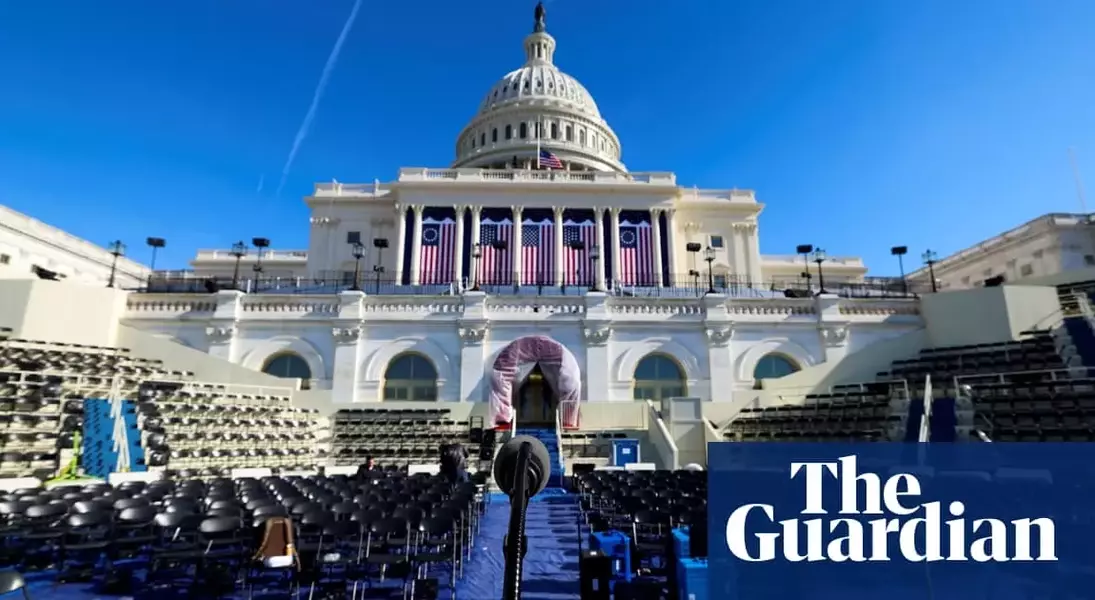The return of Donald Trump to the presidency has sent shockwaves through global financial markets. Investors and economists are grappling with uncertainty over whether the 47th US president will adopt a softer stance or if his policies will exacerbate economic challenges, particularly inflation and debt. Corporate America is cautiously optimistic, while Wall Street remains wary of potential disruptions from campaign promises turning into reality.
A New Era of Economic Uncertainty: Can Markets Withstand the Pressure?
The Bond Market's Response to Trump's Return
The bond market has shown signs of concern as Trump prepares to take office again. Yields on US 10-year Treasury bonds have surged, reflecting investor anxiety over the prospect of higher inflation and interest rates. The yield rose sharply to nearly 4.8% in recent weeks before retreating slightly following better-than-expected inflation data. Nobel laureate Paul Krugman has suggested this could be an “insanity premium” for the US in global markets, indicating that investors are starting to doubt the stability of US fiscal policy under Trump.Experts argue that Trump’s proposed tariffs on China and other countries, along with potential trade wars with Mexico and Canada, could significantly stoke inflation. Additionally, his plans to deport undocumented migrants may tighten the labor supply, further adding to inflationary pressures. However, some investors hope that Trump might soften his approach if bond markets react negatively. Jamie Constable, a markets strategist at Singer Capital Markets, believes that Trump’s sensitivity to financial markets could lead him to tone down his rhetoric, especially if bond yields rise above 5%, triggering a stock market sell-off.Corporate America's Dilemma
While major corporations have expressed support for the incoming administration, there is a growing sense of unease among investors. Share prices on Wall Street have rallied to near-record highs, driven by expectations that Trump’s tax cuts and deregulation will boost corporate profits. Yet, Albert Edwards, chief global strategist at Société Générale, warns of parallels with the 1987 financial crash, when persistent budget deficits and high stock valuations led to the infamous Black Monday.Edwards urges investors to exercise extreme caution, noting that the US federal deficit has ballooned to $1.8 trillion, while overall national debt exceeds $35 trillion—representing 123% of GDP. Trump’s campaign promises include over $7.8 trillion in tax cuts, offset by only $4.7 trillion in policies, primarily through tariffs. This could increase the deficit by $3 trillion, raising concerns about the sustainability of US fiscal policy.The Federal Reserve's Role
The Federal Reserve plays a critical role in shaping the economic landscape. Historically, the Fed has supported the US government by purchasing Treasuries in unprecedented volumes since the 2008 financial crisis. However, with inflation rising, the Fed’s focus has shifted toward reducing its presence in the bond market. Janet Yellen, the outgoing Treasury secretary, has warned that the US is on an unsustainable path and could face a debt crisis if Congress does not address the growing deficit.Scott Bessent, Trump’s nominee to replace Yellen, has proposed a plan known as “3-3-3,” aiming to reduce the federal budget deficit to 3% of GDP, drive economic growth to 3%, and produce an additional 3 million barrels of oil daily by 2028. While Bessent criticizes Biden’s Inflation Reduction Act (IRA) as “wildly out of control,” he argues that failing to extend temporary tax cuts made by Trump in 2017 could lead to an “economic calamity.”Bond Markets Under Scrutiny
Investors are closely monitoring fiscal policy developments, particularly given the demographic challenges facing the US. Projections indicate that deficits and debt are on an explosive path, posing significant risks to bond markets. James Bilson, a fixed income strategist at Schroders, emphasizes that fiscal policy has become crucial for markets, especially in the US. He warns that market pricing is clearly responding to these concerns, signaling potential volatility ahead.In conclusion, the return of Donald Trump to the White House has introduced a new era of economic uncertainty. While some investors remain hopeful that he will soften his stance, others are bracing for potential disruptions. The bond market’s reaction, corporate sentiment, and the Federal Reserve’s actions will all play pivotal roles in determining the future trajectory of the US economy.
